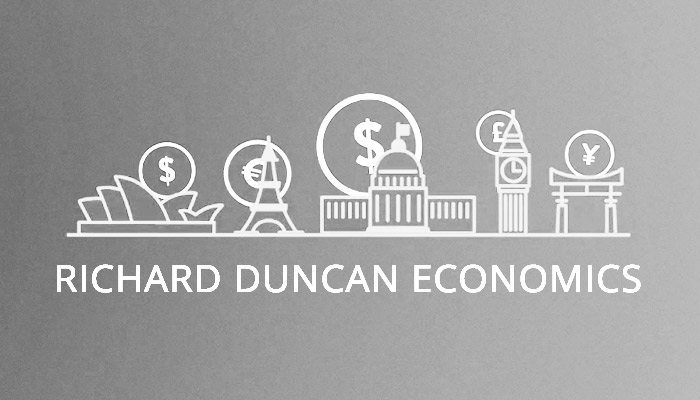Watch MACRO WATCH on YouTube

Posted January 9, 2014
Macro Watch First Quarter 2014 is now uploaded and ready to watch.
It explains how the Fed’s new “Taper Schedule” is likely to impact Liquidity and Asset Prices on a quarter by quarter basis in 2014 and on into 2015.
To watch the 4-minute introduction video on YouTube, click on the following link:
https://www.youtube.com/watch?v=i4cPpnbopJo
This issue of Macro Watch contains over 1.5 hours of video content divided into six parts.
Contents:
1. Introduction
2. Economic Overview, With a Focus on Net Worth
3. Credit: Will Credit Growth Accelerate?
4. The Fed & Liquidity
5. Liquidity Conditions in 2014 and The Prospects for Asset Prices
6. Global Deflation?
To subscribe, please click here:

Richard,
Your Macro Watch is an excellent product (congrats), Q1 2014 I found highly informative, it cuts through a very confusing global environment at present for investors and provides some clear cut conclusions on potential outcomes over the coming months. I have couple of questions 1)Equity markets tend to discount the future circa 6 months, so if you were Yellen (coming into the Fed chair), would you risk the potential for a significant market correction or act immediately to give even more dovish forward guidance on the taper in the light of weakening numbers? 2)You mention Governments inability to drive respective global economies due to either very high levels of debt/gdp or debt threshold legality issues, what would be the implications of Gov’s writing off their QE derived debt..ie outright monetisation to allow them to take on more debt? thanks
Thanks Mark!
Regarding your first question, equity markets certainly used to discount the future circa 6 months in advance, but I’m not sure they are able to now. I think the force of excess liquidity could possibly outweigh the market’s desire to discount bad news. As you saw on Macro Watch, I think there will continue to be a lot of excess liquidity during the first half of this year. I believe the challenge faced by the Fed and by Mrs. Yellen is to rein in liquidity enough to prevent a stock market bubble from forming, but not so much that stock prices and the economy crash. I wish them luck.
2) I believe the private sector can’t bear much more debt, but that the government sector could and should. I would like to see the governments borrow and spend more on investments in the development of new industries and technologies. In my opinion, the Fed and the other central banks that have accumulated government bonds through fiat money creation should cancel those bonds (as you propose in your question). I think they should and I think they eventually will. That will leave them in a much stronger financial position, with no cost to anyone. Then, they could invest more.
Richard, thanks for you answers; follow on questions, wouldn’t the write off of all this QE related debt have inflationary implications? and 2)if the USA economy is really improving somewhat (as many suggest), shouldn’t we be looking at the velocity of money more closely, not necessarily the quantity of money in circulation.
Richard
Your last macro watch was awesome. In one of your courses you referenced a link which shows all government numbers on a monthly and quarterly basis. Do you recall the link
Thank you
Bob
Bob,
Thanks for the encouraging feedback.
Regarding your question, could you be more specific? I’m not sure which numbers you mean.
Richard